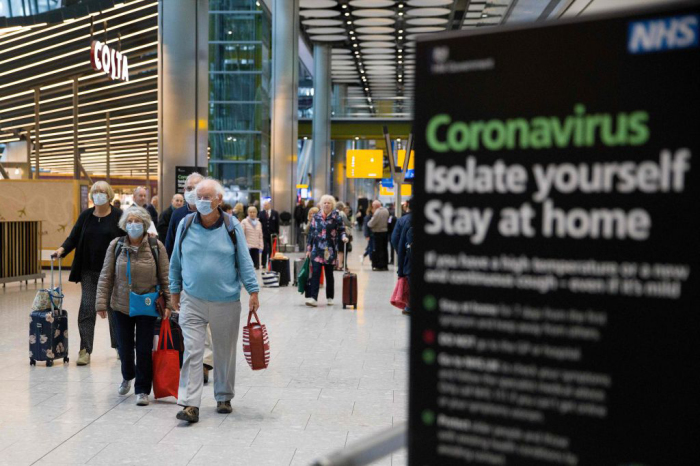COVID-19 death statistics may be inflated by states adding murders, auto accident fatalities to list: report

A new report is raising questions about the accuracy of coronavirus death statistics, suggesting that the number of deaths from COVID-19 reported in the United States might be inflated.
Investigative journalist Sharyl Attkisson spoke with Brenda Bock, the coroner of Grand County, Colorado, in the most recent episode of her syndicated newsmagazine program “Full Measure,” which aired Sunday. In the program, coroners explained that the state was listing fatalities caused by gunshot wounds and vehicle crashes as deaths from the coronavirus.
Attkisson opened the segment by noting that on Thanksgiving Day last year, a man named Lucias Reilly shot and his wife, Kristin, in the head before turning his gun on himself. Both of their deaths were listed as being caused by the coronavirus, not a fatal shooting.
While Bock had ruled the Reillys’ causes of death as a homicide and suicide, she told Attkisson that “the very next day it showed up on the state website as COVID deaths.”
“I questioned that immediately because I had not even signed off the death certificates yet and the state was already reporting them as COVID deaths,” she said.
Bock alleged that someone ran the Reillys’ names through a database, which showed that they had tested positive for coronavirus within 28 days of their death. Coronavirus was recorded as their cause of death even though Bock had concluded otherwise.
Attkisson asked Bock, “If we look at the death certificates for the murder-suicide case, what will it say about COVID?” Bock responded by saying, “Nothing, absolutely nothing. I paid a forensic pathologist to do the autopsies on those two cases. And nowhere is COVID mentioned on those death certificates.”
Within a week of the murder-suicide, Bock discovered that according to the state’s coronavirus database, Grand County had recorded two additional coronavirus deaths. Upon further investigation, she realized that “two of them were actually still alive, and yet they were counting them.”
Bock recalled that when “she called them on it,” state officials described the error as a “typo” and stressed that “they just got put in there by accident.” Attkisson also talked to Dr. James Caruso, the chief medical examiner and coroner for Colorado’s capital and largest city, Denver.
Caruso suggested that while “people signing the death certificates probably were doing it accurately,” “at some level — maybe the state level, maybe the federal level — there’s a possibility that they were cross-referencing COVID tests. And that people who tested positive for COVID were listed as a COVID-related death, regardless of their true cause of death.”
The coroner also shared his concerns with the Colorado Department of Public Health early in the pandemic. In responses to the allegations raised by Caruso that the state was counting those who died “with” COVID as having died “of” COVID, the state began classifying deaths caused by COVID and deaths of people with COVID into separate subcategories.
In a statement, the office of Colorado Gov. Jared Polis explained that the state website highlights that “some … numbers combine deaths that were a direct result of COVID and deaths that occurred when the individual had COVID-19.” The governor’s office added that Polis was “outraged” that the murder-suicide was classified as a COVID-related death.
According to Attkisson, separating deaths “of” COVID and “with” COVID has a significant impact on the coronavirus death tally: “During our visit to Colorado, the state’s total COVID-related death tally was 13,845. Separating out the deaths not directly caused by COVID cuts that number by about half, with the rest dying ‘among’ or ‘with’ COVID — not because of it.”
“The obvious implications are huge,” she noted. “If such a significant number of Colorado’s ‘COVID deaths’ weren’t directly caused by COVID or even related at all in some cases, and if that bears out in other states, it means the national totals we’ve heard since the start of the pandemic could be largely misleading.”
The coronavirus death statistics have been used by government officials at the local, state and national levels to implement public policy measures, including mask mandates, lockdowns, worship restrictions and most recently, vaccine mandates. As of Saturday afternoon, the latest coronavirus death tally from the Centers for Disease Control stands at 684,884.
A report released by the CDC last year revealed that 94% of those who died from coronavirus had “underlying health conditions and contributing causes” while the remaining 6% consisted of otherwise healthy people who died from the coronavirus. Examples of “underlying health conditions and contributing causes,” include influenza, pneumonia, cardiac arrest, heart failure, diabetes, obesity and renal failure.
Attkisson listed some other examples of deaths attributed to coronavirus that have nothing to do with coronavirus, including “fatalities after traffic accidents” and “three Colorado nursing home deaths.”
Similarly, a Tennessee woman whose husband died of cancer saw coronavirus listed as the cause of death on his death certificate. After she complained about the mistake, the Tennessee Department of Health removed coronavirus as the cause of death, thereby fixing what they labeled a “clerical error.”
Ryan Foley is a reporter for The Christian Post. He can be reached at: ryan.foley@christianpost.com




























